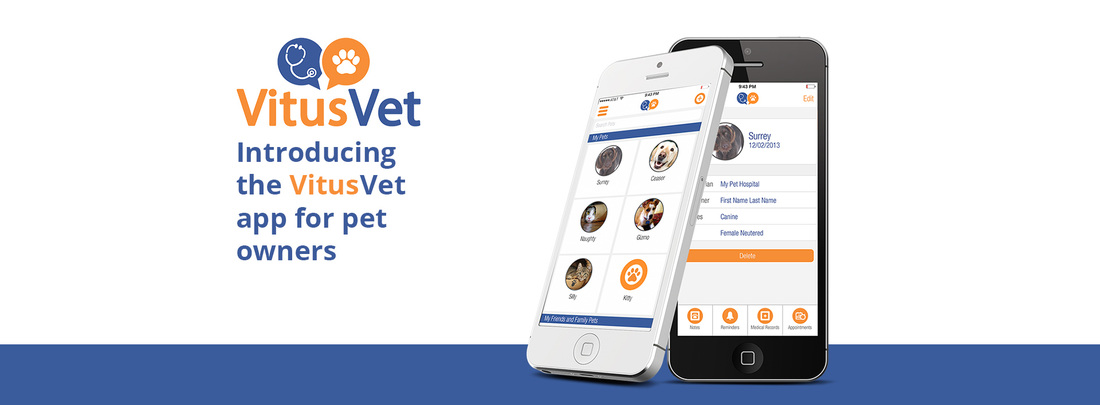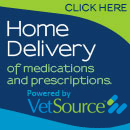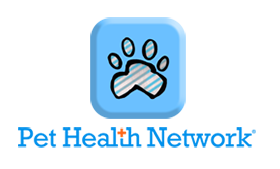|
Touched By The Sun Labradors (aka Joe and Julie Grohs and Lab family) are very pleased to present our Dream Litter - Summer X Sunny. We had 4 girls and 6 boys and absolutely love the entire litter. See tbtslabradors.com for more information. And........ Norah X Sunny litter due early May. Drs Joe and Julie Grohs have invested in new endoscopic equipment for performing trans-cervical Insemination in dogs (TCI). We are very excited to offer this additional service to our clients. We continue to offer side by side AI, as well as surgical AI. Please call the office at 688-9303 to schedule pre-breeding services for your upcoming litters!
Here at Alaska Equine & Small Animal Hospital we hope that everyone is doing well as we approach the long winter months. Our protocols for COVID safety throughout the year have so far been successful for keeping us up and running. As winter arrives, we want to continue to keep everyone safe from COVID as well as using some good old common sense for winter conditions. To that end we will continue to restrict entry into our facility with very few exceptions. Those exceptions include euthanasia (1 family member only please), cesarean sections (helpers to be cleared by Dr. Grohs), situations in which we need to be able to share diagnostic information regarding your pet, and any other exceptions cleared through Dr Grohs only. These exceptions will be rare. We take our responsibilities to our community, our staff, our clients and our ability to continue to provide veterinary services very seriously, please help us help you by abiding by these protocols.
Another facet of winter care will be how your pet enters and exits the building. At the time of your appointment when the staff is ready to obtain information about your concerns and needs for your pet as well as the current medical history you will be asked to drive to the entry way of the clinic and bring your pet (on a LEASH or in a carrier) onto the porch to deliver them to the staff. Masks are required. A staff member will then discuss these items with you in the relative comfort of the porch. (We are adding a heater!) This also minimizes walking in the parking area in winter conditions. Please follow the directions of staff members during this process to maintain an orderly flow of vehicles. While we conduct our exam and treatment of your pet, please return to a parking space. The staff will alert you to return to the porch to retrieve your animal and receive billing, instructions, etc. Dear Friends and Clients,
We hope this letter finds you and your families safe and healthy. Here at Alaska Equine & Small Animal Hospital we are following CDC, AVMA, state and local guidelines to protect the health and safety of our staff and clients while continuing to provide essential veterinary services. This means that we will ask travel and health related questions when you call for an appointment and your visit to the hospital will be via "curbside" care. The you arrive at our facility you will be asked to call the front desk. You can provide history and relevant questions over the phone with our technicians. A staff member will come out to your car to retrieve your pet for examination and treatment. You will be able to speak and/or FaceTime with the veterinarian by phone as well. Clients picking up prescriptions, etc. will also be asked to call the front desk for curbside delivery. Thank you for your understanding during this time. We will keep you updated with any changes to our protocols. Wishing you all well, Drs Julie and Joe Grohs Touched By the Sun Labradors are the mascots for Alaska Equine & Small Animal Hospital. Owned and handled by Drs Joe and Julie Grohs, the whole crew has been training, competing and traveling again this year to hone their skills in hunt tests. The result of all this hard work are that "Summer" (Touched By the Sun's Summer Breeze) has garnered more points in the NAHRA competition season as well as qualifying in this years National Invitational held right here in Alaska. In 2018 she was the high point NAHRA dog in the Master Hunter category as well as the Senior Upland catergory for North America. We are so proud of this girl and all of the hard work Dr. Joe has put into his partnership with her. "Sunny" (Katmai Lady Blue Skies) is now an AKC Grand Champion in the show ring with the help of professional handlers Tiffany and Shea Skinner. He also holds multiple NAHRA titles and AKC titles in hunt tests and a Rally Advanced title. In 2018 he was the high point NAHRA Intermediate dog. "Norah" (Quail Run's One and Only Norah) holds both NAHRA and AKC titles in hunt tests and Rally. All three of these amazing labradors are phenomenal pheasant hunters in the field. Our newest addition is "Nike" (Touched By the Sun's Nike on the Horizon). She is from Wetland Retrievers and is rocking her early work in NAHRA competitions. Watch for more information about our mascots as they finish the 2019 season.
Equine Disease Communication Center: Disease Factsheet
Equinediseasecc.org, [email protected] Streptococcus Equi (Strangles) Disease Name: Streptococcus equi. Also known as “Strep Equi” or Strangles. Disease Type: Bacterial infection. Transmission: Strep Equi is spread from horse to horse through direct contact. Horses can also contract the disease by coming into contact with contaminated surfaces. The disease is highly infectious. Frequency: Strep Equi is extremely common. Most horses are exposed and/or infected at a young age. Incubation period: 3 to 14 days. Carrier status: Horses who have been infected but are clinically healthy can continue to incubate and shed. A recovered horse may be a potential source of infection for at least 6 weeks after the clinical signs of strangles have resolved. Some horses that have recovered from the disease can become long term, periodic shedders and can cause outbreaks when introduced to new herds. Shedding period: Horses infected with Strep equi are a source of infection to others and often continue to shed for up to 6 weeks post recovery. Latency: Streptococcus equi is present during the incubation period and the horse can be a carrier without any clinical signs. Severity: Low. Clinical signs and symptoms: Fever, usually preceding other clinical signs by 24-48 hours Abscesses in the mandibular lymph nodes (in the throatlatch and below the jaw) Nasal discharge: often thick white and yellow mucus Inflammation of the throat Difficulty swallowing Wheezing Cough Purpura hemorragica- bleeding from the capillaries which causes red spots on the mucous membranes and swelling of the limbs and head (rare; only in cases with complications) Swelling of the muscles (rare: only in cases with complications) Diagnosis: Diagnosis is made through culture of nasal wash, nasal swab, or pus aspirated from abscesses or through PCR testing. Treatment: Supportive care is the primary treatment. Use of antibiotics in infected horses is restricted to those with severe clinical signs such as respiratory difficulty as most horses recover without antibiotic treatment. Horses treated with antibiotics early in the course of infection may avoid lymph node abscesses but may not develop immunity to the disease. Treatment decisions should be made by a veterinarian Prognosis: Good: Strangles is rarely fatal and horses usually make a full recovery in three to four weeks with few complications. Horses who have been infected with Strangles can maintain long-term immunity to that strain. Prevention: An intranasal vaccine is available but is not effective against all infections. Any surfaces that are contaminated with mucus or other nasal discharge from infected horses pose a threat of infection to healthy horses. Post outbreak, cleaning should involve removal of all organic material from surfaces and subsequent disinfection of water containers, feeders, fences, stalls, tack and trailers. Biosecurity: Strep equi outbreaks can be hard to prevent because of the prevalence of subclinical carriers (clinically healthy horses who shed the virus for weeks or even years after recovery). Outbreaks are common, especially in facilities with high horse traffic where new horses are frequently moved between stables or herds. Whenever possible, new horses should be quarantined for up to three weeks when being introduced to a new facility. High standards of hygiene should be maintained in facilities to decrease chance of horses coming in contact with contaminated surfaces. To prevent indirect infection during an outbreak, handlers should avoid coming in contact with susceptible animals after handling infected animals. Handlers should wear protective clothing, avoid using the same equipment on multiple animals, and disinfect hands and equipment when moving between animals. The staff of Alaska Equine & Small Animal Hospital has created this slideshow highlighting aspects of pet dental health care. We are offering special pricing now for Dental Health Month. Call soon for your appointment: 907-688-9303. Here are more items of interest to dog and cat owners regarding pet dental health, we hope you enjoy them. Bad breath? February is National Pet Dental Health Month. Left untreated, dental disease isn’t just bad for your pet’s teeth; it can actually damage internal organs, including the heart, liver and kidneys. That’s why regular dental exams are so important. 80% of dogs and 70% of cats have some form of periodontal disease by the age of 3, and this will only worsen if effective preventive measures aren’t taken. Preventive care can help protect your pet and catch problems before they become more serious. Call us today to set up an appointment during National Pet Dental Health Month! Check out this link to the American Veterinary Medicine Associations pages on dental care: https://www.avma.org/public/PetCare/Pages/Pet-Dental-Care.aspx VitusVet announced a partnership with Pet Poison Helpline to give pet owners and veterinary professionals a way to contact Pet Poison Helpline's poison control center from within the VitusVet app and start a consultation in case of an emergency. The VitusVet app now also serves as a resource for emergency instructions if a pet is poisoned, giving owners access to Pet Poison Helpline's comprehensive database of 250+ potential poisons.
Source: Brakke Consulting
Aug. 15 is Check the Chip Day, created by the AVMA and the American Animal Hospital Association to promote owner education about the benefits of microchipping and the need to keep microchip registration information current.
|
Author - AESAH StaffArchives
April 2021
Categories |
Office Hours
Monday- Friday 9:00am-6:00pm
Saturday & Sunday Closed |
Get in Touch
Mailing: PO Box 671512
Chugiak, AK 99567 Physical: 21236 Birchwood Loop Chugiak, AK 99567 Phone: (907) 688-9303 |
Site powered by Weebly. Managed by IDEXX Laboratories


 RSS Feed
RSS Feed



